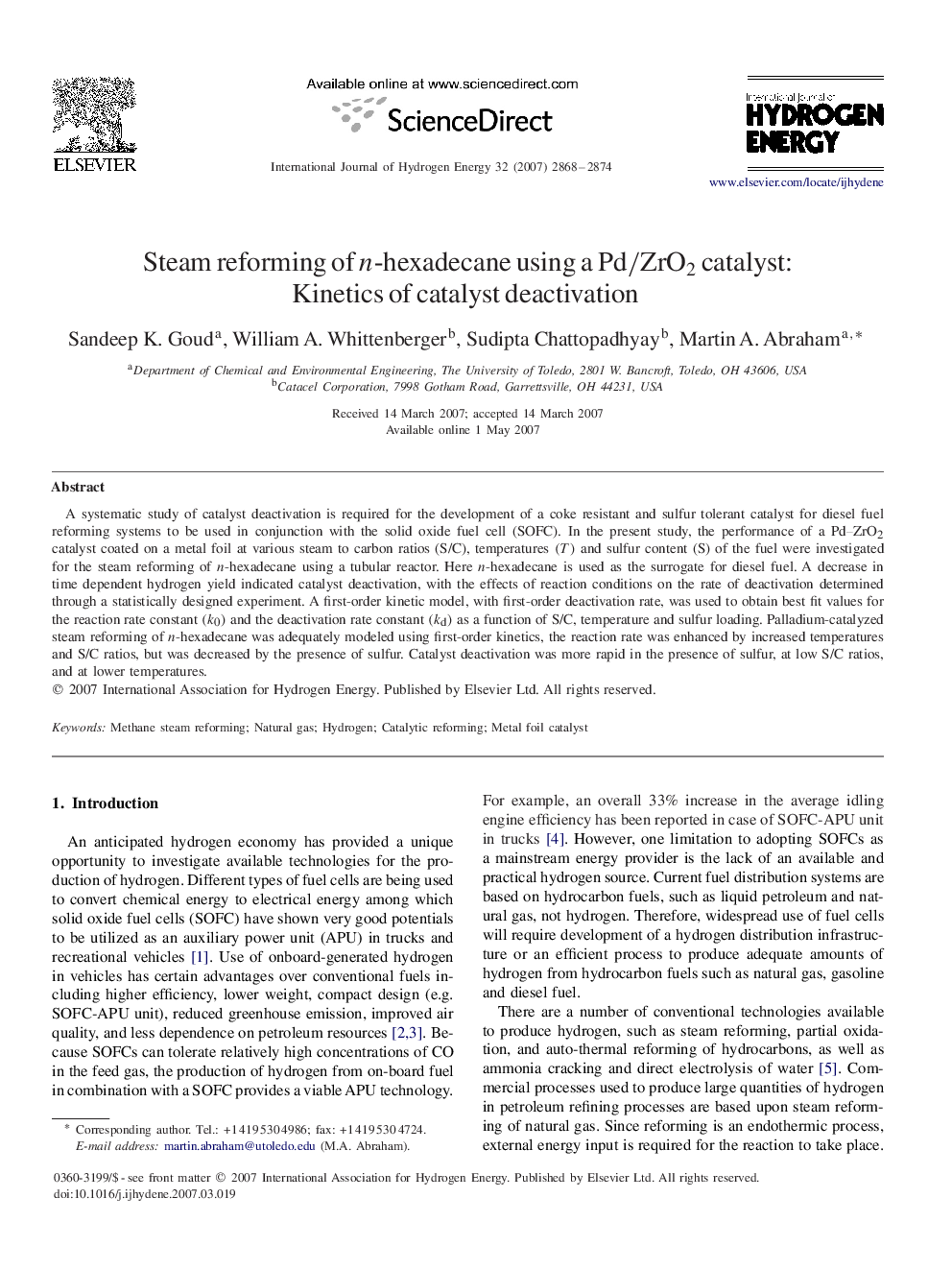| Article ID | Journal | Published Year | Pages | File Type |
|---|---|---|---|---|
| 1280187 | International Journal of Hydrogen Energy | 2007 | 7 Pages |
A systematic study of catalyst deactivation is required for the development of a coke resistant and sulfur tolerant catalyst for diesel fuel reforming systems to be used in conjunction with the solid oxide fuel cell (SOFC). In the present study, the performance of a Pd–ZrO2Pd–ZrO2 catalyst coated on a metal foil at various steam to carbon ratios (S/C), temperatures (T)(T) and sulfur content (S) of the fuel were investigated for the steam reforming of nn-hexadecane using a tubular reactor. Here nn-hexadecane is used as the surrogate for diesel fuel. A decrease in time dependent hydrogen yield indicated catalyst deactivation, with the effects of reaction conditions on the rate of deactivation determined through a statistically designed experiment. A first-order kinetic model, with first-order deactivation rate, was used to obtain best fit values for the reaction rate constant (k0)(k0) and the deactivation rate constant (kd)(kd) as a function of S/C, temperature and sulfur loading. Palladium-catalyzed steam reforming of nn-hexadecane was adequately modeled using first-order kinetics, the reaction rate was enhanced by increased temperatures and S/C ratios, but was decreased by the presence of sulfur. Catalyst deactivation was more rapid in the presence of sulfur, at low S/C ratios, and at lower temperatures.
